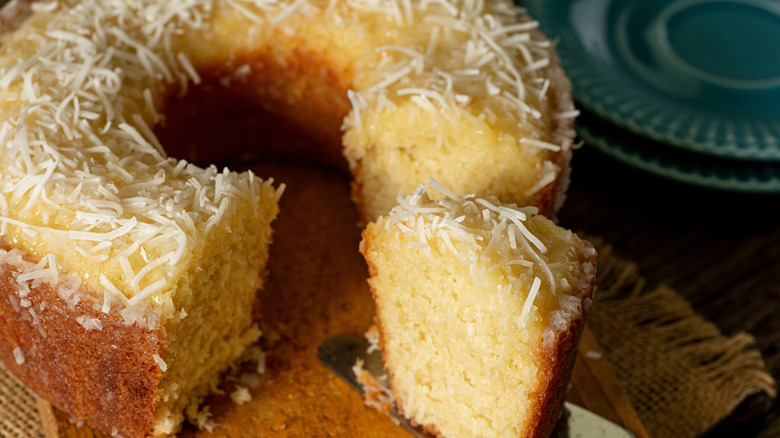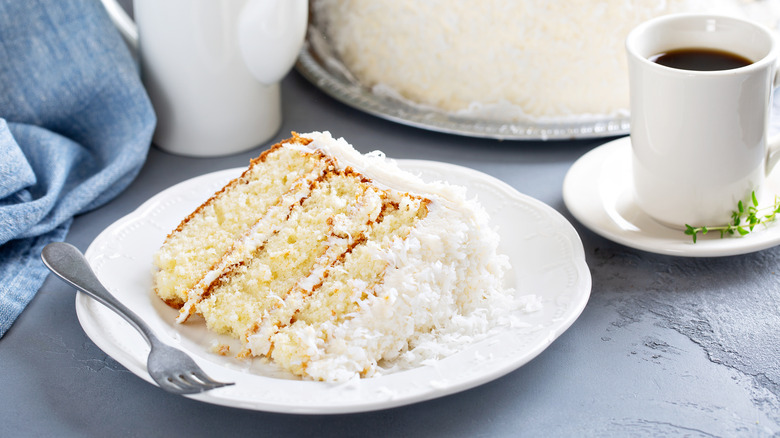Why Coconut Cake Belongs On Your Juneteenth Cookout Menu
We may receive a commission on purchases made from links.
With Juneteenth coming up, you may be trying to figure out what foods and drinks should be served specifically for the holiday. Celebrations often involve outdoor gatherings, providing a great opportunity to take advantage of the grilling season while observing history. Although deciding how much food to make at your cookout is its own story entirely, we recommend you make sure to include some coconut cake for dessert, as its ties to Black history and culture run deep. That connection dates back to the original cakewalks, a game created by enslaved people in the pre-Civil War South.
For those uninitiated, before the cakewalk became staples of block parties and holiday parties, it was an activity done by slaves to mock their captors and entertain themselves. While the exact origins of the cakewalk aren't clear, the practice has been fairly well-documented. Each participant would dress up and do a dance meant to mimic and parody the dances done at their slave owners' extravagant ballroom parties. The plantation owners judged the contestants, and in the end, whoever did the dance best would be rewarded with a cake (oftentimes a coconut cake) as a prize. Suffice it to say, the original cakewalk differed vastly from the iterations seen today.
The origins of Coconut cake in America
As for the reason coconut cakes were so integral to cakewalks, that comes down to the delicious dessert's origins in the United States; slaves from Africa passed down the knowledge of how to break down coconuts and use them for food. This eventually led to recipes for coconut cakes appearing in the 19th century, the most notable example of which was featured in 1881's "What Mrs. Fisher Knows About Old Southern Cooking." Written by Abby Fisher, it is thought to be just the second cookbook by an African American woman ever to be published in the U.S. As time went on, coconut cake became ingrained in America's Black culture. It is included at various gatherings, ranging from weddings and funerals to holidays like Christmas and Juneteenth.
As for how these early coconut cakes were made, it was a labor-intensive task for bakers to make. From hand-grating the insides of coconuts to using beaten eggs as a lift and beyond, preparing this dessert in the 19th century was certainly no cakewalk. Today, we can find frozen versions of the dessert in grocery stores, though making your own at home might just be the perfect way to celebrate those that came before us on Juneteenth.

